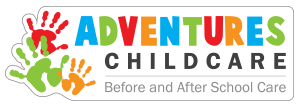Benefits of Child-Led Education: Empowering Young Minds
Education is not a one-size-fits-all approach, especially when it comes to early childhood learning. The concept of child-led education is gaining momentum in educational circles as an innovative, effective, and child-centric approach to learning. This method focuses on the interests, curiosities, and developmental pace of the child, offering a flexible framework where children take the lead in their educational journey. But what exactly are the benefits of child-led education, and how can it positively impact early childhood development? Let’s explore.
What is Child-Led Education?
Child-led education is an approach that shifts the traditional teacher-centric paradigm, allowing children to take the reins of their learning experiences. In this model, educators observe, guide, and support rather than dictate the learning process. It’s about providing children the freedom to explore topics and activities that intrigue them while fostering their natural curiosity.
At its core, child-led education values the individuality of every child, focusing on their unique interests, strengths, and learning styles. Instead of adhering to a rigid curriculum, this method emphasizes flexibility, creativity, and active engagement, creating an environment where children feel empowered to explore their world at their own pace.
Key Benefits of Child-Led Education
- Encourages Curiosity and Creativity
In child-led education, the learning process begins with curiosity. Children are naturally inquisitive, and this approach nurtures their innate desire to explore. When children are encouraged to ask questions and seek answers, they develop critical thinking and problem-solving skills. This creativity is not limited to art and play but extends to how they approach challenges and ideas in every aspect of their lives.
For example, a child interested in bugs might engage in a science activity where they observe and learn about insects. This curiosity-driven approach makes learning more engaging and memorable.
- Promotes Independence and Confidence
Allowing children to make choices and take charge of their learning builds independence and self-confidence. They learn to set goals, make decisions, and take responsibility for their actions. These life skills are invaluable and help prepare them for future academic and personal success.
At Adventures Child Care, child-led activities empower children to express their ideas and take ownership of their projects, whether it’s constructing a model or choosing a book to read. This sense of autonomy fosters confidence in their abilities.
- Supports Emotional Development
Child-led education creates a nurturing environment where children feel heard and valued. This emotional safety encourages them to express their thoughts and feelings, which is crucial for emotional development. When children feel supported in their choices, they learn to manage emotions like frustration, excitement, and disappointment in a healthy manner.
Educators in a child-led setting play a crucial role in modeling positive communication and empathy. By validating a child’s feelings and guiding them through challenges, they help children build resilience and self-regulation skills.
- Enhances Social Skills
Collaboration is often a natural part of child-led education. When children work on group projects or engage in play, they learn to communicate, negotiate, and share responsibilities. These interactions help develop essential social skills like empathy, teamwork, and conflict resolution.
For instance, a group of children building a fort together must discuss their ideas, divide tasks, and solve problems collectively. These experiences prepare them for future group dynamics in both academic and professional settings.
- Adaptable to Diverse Learning Styles
Every child learns differently, and child-led education embraces this diversity. Whether a child is a visual learner who thrives on picture books and art or a kinesthetic learner who needs hands-on activities, this approach adapts to their preferences. This flexibility ensures that all children feel included and engaged.
At Adventures Child Care, educators observe each child’s learning style and tailor activities to meet their needs. This personalized approach helps every child succeed in their unique way.
Real-Life Examples of Child-Led Education
At Adventures Child Care, the benefits of child-led education are evident in the daily activities and interactions. For example:
- Interest-Driven Projects: When a group of children showed interest in space, the educators facilitated a project where they built model rockets, learned about planets, and even created their own constellation maps.
- Outdoor Exploration: Children who love nature often lead outdoor learning sessions, discovering local plants and animals, which enhances their knowledge of science and ecology.
- Creative Play: Through dramatic play, children role-play as chefs, doctors, or adventurers, using their imagination to explore careers and develop problem-solving skills.
These activities not only align with the child’s interests but also integrate important developmental milestones.
Challenges and How to Overcome Them
While child-led education has numerous benefits, it does come with challenges. For instance, it requires educators to balance structure and freedom, ensuring that children stay engaged without becoming overwhelmed or distracted.
Educators can overcome these challenges by:
- Observing and documenting children’s interests to create meaningful learning opportunities.
- Setting clear boundaries and expectations while allowing room for exploration.
- Providing a variety of materials and resources to keep children inspired and engaged.
The Role of Educators in Child-Led Education
Educators in a child-led environment act as facilitators rather than instructors. Their role is to observe, listen, and guide, helping children expand on their ideas and interests. This requires a deep understanding of child development, as well as a commitment to fostering a supportive and inclusive environment.
At Adventures Child Care, educators are trained in observation techniques and the FLIGHT Early Learning and Care Framework, ensuring that every child’s experiences are meaningful and developmentally appropriate.
Why Parents Love Child-Led Education
Parents who choose child-led education for their children often see noticeable changes in their child’s enthusiasm for learning. They appreciate the way this approach values their child’s individuality and encourages holistic growth. Parents also report increased communication with their children about what they are learning, as children are excited to share their discoveries.
Conclusion
Child-led education is a transformative approach that empowers children to take charge of their learning journey. By focusing on their interests, strengths, and learning styles, this method nurtures creativity, independence, and emotional resilience. At Adventures Child Care, child-led education is at the heart of our philosophy, ensuring that every child feels valued, supported, and inspired to reach their full potential.
If you’re interested in how child-led education can benefit your child, we invite you to visit Adventures Child Care. Let’s embark on this journey of discovery and growth together.


